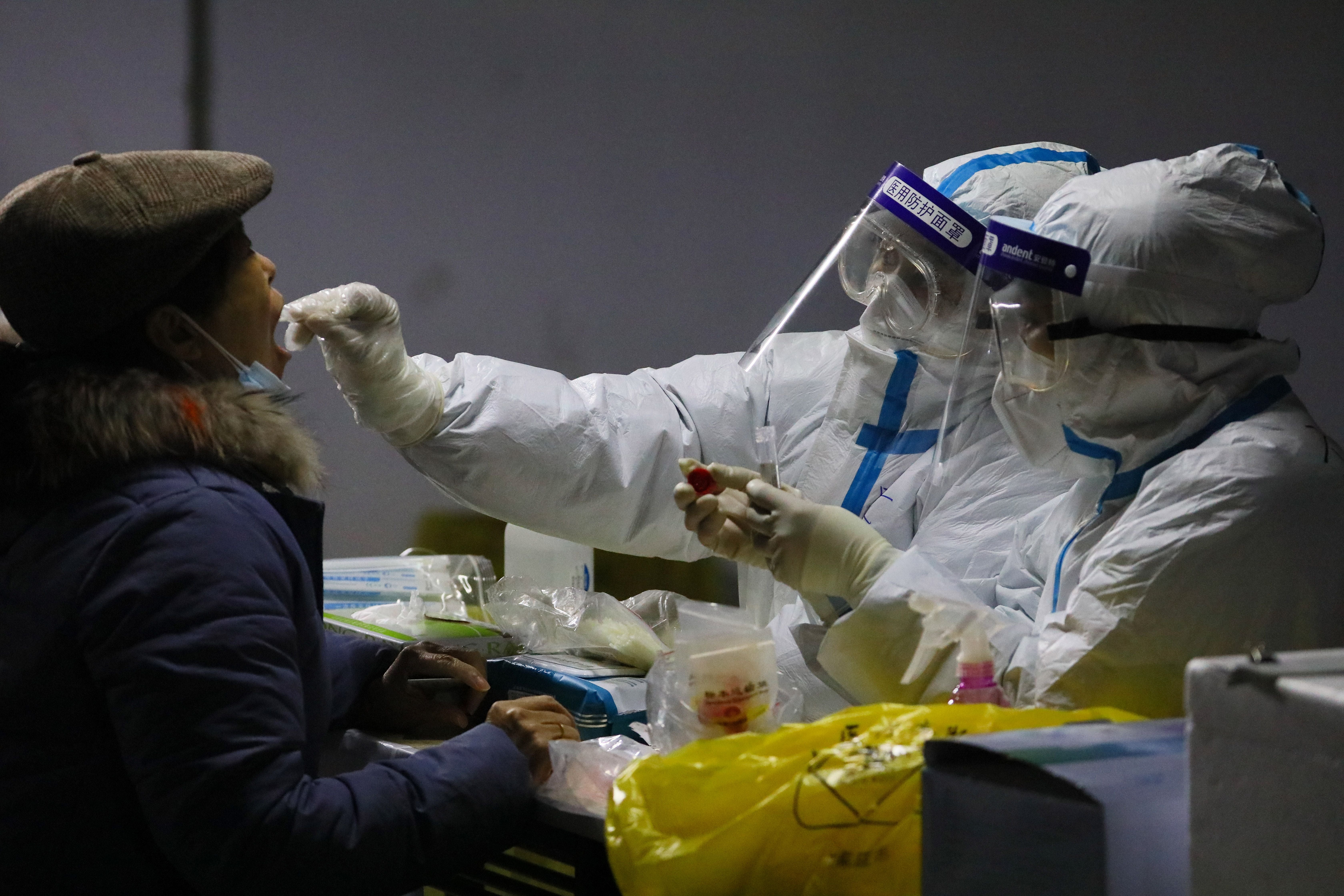China introduces new Covid restrictions around Beijing, amid fears of second wave
Experts have linked the latest outbreak to monitoring loopholes in the system

Your support helps us to tell the story
From reproductive rights to climate change to Big Tech, The Independent is on the ground when the story is developing. Whether it's investigating the financials of Elon Musk's pro-Trump PAC or producing our latest documentary, 'The A Word', which shines a light on the American women fighting for reproductive rights, we know how important it is to parse out the facts from the messaging.
At such a critical moment in US history, we need reporters on the ground. Your donation allows us to keep sending journalists to speak to both sides of the story.
The Independent is trusted by Americans across the entire political spectrum. And unlike many other quality news outlets, we choose not to lock Americans out of our reporting and analysis with paywalls. We believe quality journalism should be available to everyone, paid for by those who can afford it.
Your support makes all the difference.Authorities in China have imposed new Covid-19 restrictions in areas near Beijing, amid fear of the second wave of the disease in the country where it first originated.
After about 300 people tested positive for the virus last week, Shijiazhuang and Xingtai, two districts of Hebei province to the south of the capital, issued seven-day stay-at-home orders putting over 18 million people under a new lockdown.
About 55 new coronavirus cases were reported on Monday, according to the National Health Commission, and more than 100 were reported on Sunday,
Langfang, a satellite city of Beijing , has put its 4.9 million residents under home quarantine and has ordered mass testing be carried out to curb the spread of the virus.
And Hebei’s capital, Shijiazhuang, has been hardest hit in the latest surge of infections, with 82 locally reported cases of infection on Sunday, prompting the province’s legislature, the Hebei’s People’s Congress, to postpone its annual meeting that was originally scheduled for 25 January.
Though the origins of the latest outbreak are unclear at the moment, according to the South China Morning Post many of the cases have linked to weddings, funerals and religious activities in the villages around Shijiazhuang since December last year. Despite showing symptoms, some patients went to a local clinic rather than public hospitals, that were up to 31 miles away.
Chinese health officials have been battling sporadic outbreaks of coronavirus in the country since it successfully contained the first wave of the virus. These outbreaks have been more pronounced during winter, which experts believe is because of loopholes in the monitoring system.
Ernan Cui, an analyst with Gavekal Dragonomics, in a research note said that the outbreak in the Hebei region was primarily a result of blind spots in the rural areas of the province, where Covid testing was hindered by the limited facilities.
China has so far confirmed more than 96,600 coronavirus cases and 4,700 deaths, according to Johns Hopkins University.
Additional reporting by agencies



Join our commenting forum
Join thought-provoking conversations, follow other Independent readers and see their replies
Comments